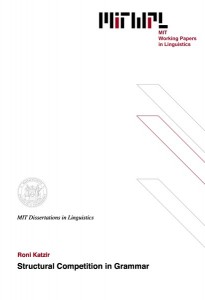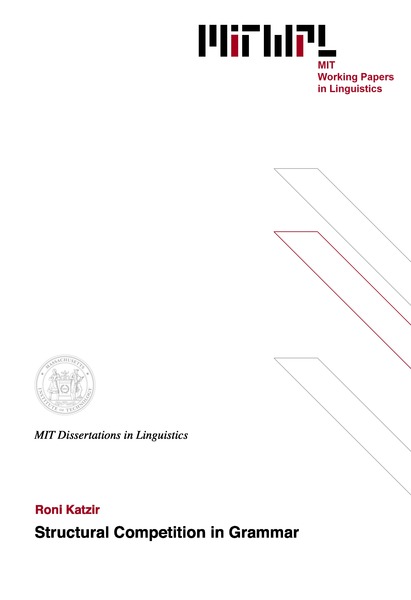Structural Competition in Grammar
Katzir, Roni, 2008
This thesis makes the following three claims: (1) Competition exists in natural language: the grammaticality (and meaning) of using a linguistic object 0 can be affected by the grammaticality (and meaning) of a different linguistic object [phi]' (2) Structure plays a role in competition: [phi]' can only affect the grammaticality (and meaning) of [phi]' of [phi]' and [phi]' are structurally related (in particular, if [phi]' is no more complex than [phi]' (3) Simpler is better: if 0 is strictly more complex than [phi]', and if the two are equally good otherwise, q will be blocked by [phi]' The first claim is the most general and the least controversial. It adds little to what is commonly accepted in the domains of conversational implicature, focus alternatives, morphological blocking, and economy conditions in syntax and semantics. Chapter 1 presents background on some of the issues regarding this general claim. The second claim is more controversial. Most work on implicature has treated considerations of structural complexity as unimportant or downright orthogonal to conversational reasoning. In the domain of focus alternatives structure has been occasionally used (in particular, below the word level), but argued to be irrelevant otherwise. In Chapter 2 I will present a case study that shows that, at least sometimes, reference to structure (specifically to structural complexity) is necessary. Chapter 3, jointly written with Danny Fox, discusses a remaining question about the use of alternatives for implicature and provides arguments for a parallel treatment of implicature and focus, as well as for a constraint on the ability of contextual relevance to remove a formal alternative from the set of actual alternatives. In Chapter 4 I discuss certain cases of morphological blocking that cannot be based solely on structural pruning. For the patterns to be accounted for, a direct preference for simpler structures must be active in the grammar.

